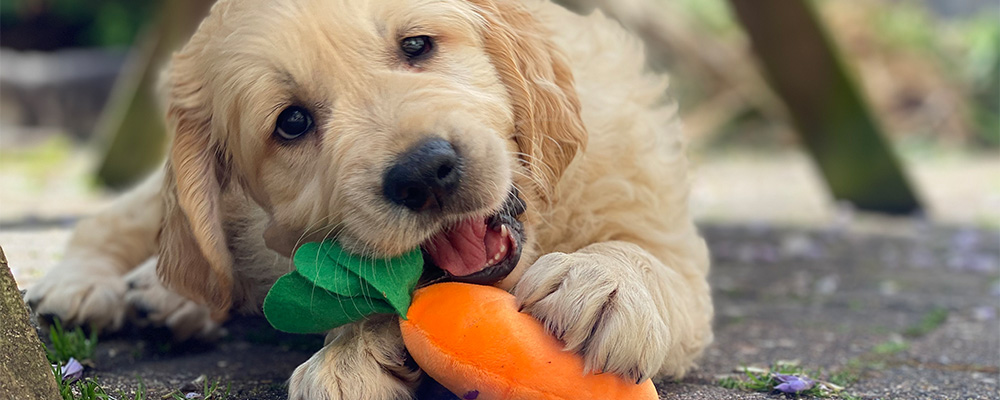
Sometimes it’s years in the making. Sometimes all the pieces just fall into place and you find yourself sat there staring into the incredibly cute face of your new puppy.
However you end up getting a puppy, it is a MASSIVE moment and we couldn’t be happier for you!
As vets, we LOVE seeing new puppies, honestly, I always say that the day I stop cooing over new puppies is the day I’ve become too bitter and twisted to be in the wonderful profession I call my career. On the other hand though, as a new puppy owner, it can be really tough! There is so much to think about, making sure you’re doing everything right for your new family member. So, of course, we thought it was about time we wrote an easy bullet point list of the things you need to do to keep your puppy happy, healthy and safe.
The first things to consider your new puppy
Microchipping for dogs
Now, I thought we would start with an easy one. This should have been done for you as it has been a legal requirement for any puppy over the age of 8 weeks to have a chip. This needs to be registered to you with your address, phone number and email to make sure you have the best chance of being reunited if they go scarpering off! Don’t forget, there is also a legal requirement for all dogs to wear a collar with your details on there too!
Vaccinating your new puppy
Hopefully, these will also have been started before you get your pup. They should have at least been to the vets for a health check. Don’t worry if they don’t have any vaccinations yet, get yourself booked into your local vet for a visit and get these started as quickly as possible after 8 weeks of age.
We usually recommend vaccination against distemper, hepatitis, parvovirus and leptospirosis as the “core” vaccinations. These are all nasty, life-threatening diseases that we must protect young puppies from. Your vet might also discuss a kennel cough vaccination with you to protect from a very infectious upper respiratory tract disease.
Lastly, if you’re planning on taking your pooch abroad, you will need to talk about a rabies vaccination with your vet but don’t worry, we don’t have rabies in this country so you don’t need to get this as a routine.
Parasite prevention for new puppies
This can be a bit of a minefield. I would highly recommend you speak to a vet about what parasites are likely to be a threat to your dog and work out an appropriate product to use to prevent these. To give you an idea, in the UK we see lice, mites, ticks, fleas, roundworm, tapeworm, whipworm, hookworm, lungworm… and that’s not all of them! Some of these are more common in certain areas, such as ticks are mainly found in wooded areas or areas where there is a carrier species such as deer.
Being a vet in London, I particularly focus on lungworm as it is very common in the area and can be very serious if left untreated. Your vet will likely recommend using prescription prevention on a monthly basis to keep these nasties away!
Food for puppies
Where do I start… Don’t worry, we will be putting together a blog on the types of food and the pros and cons of these very soon but for now there are a few rules you need to follow with your pup. Firstly, DO NOT CHANGE YOUR PUP’S FOOD for the first week or so. Their life has just been flipped upside down so if you can, keep the food exactly the same as the breeder was doing for at least the first week or two.





